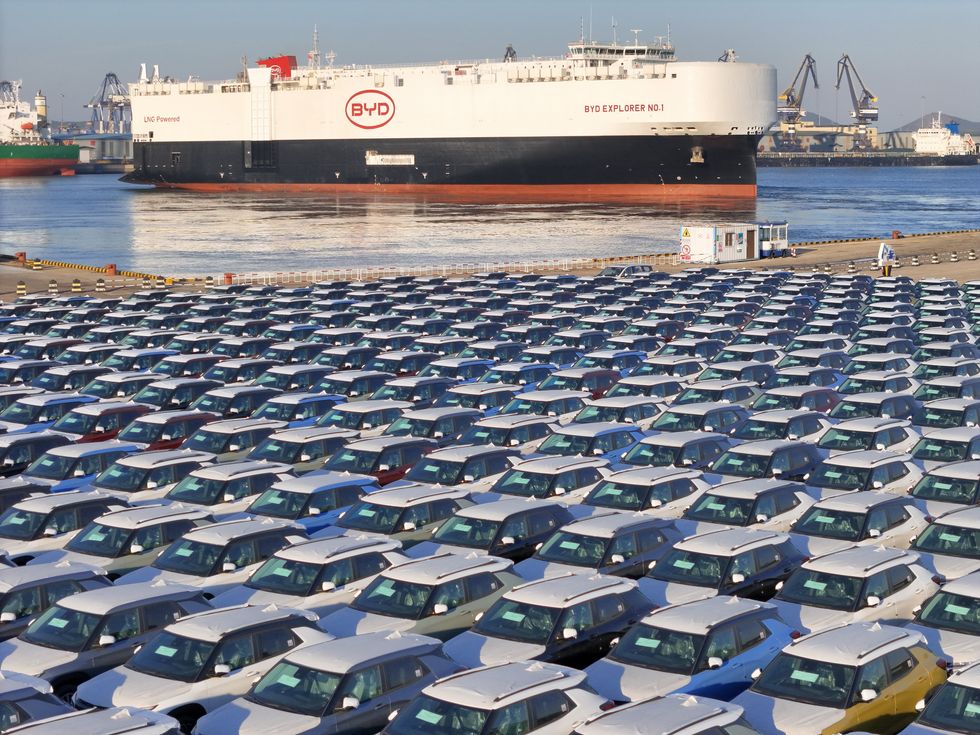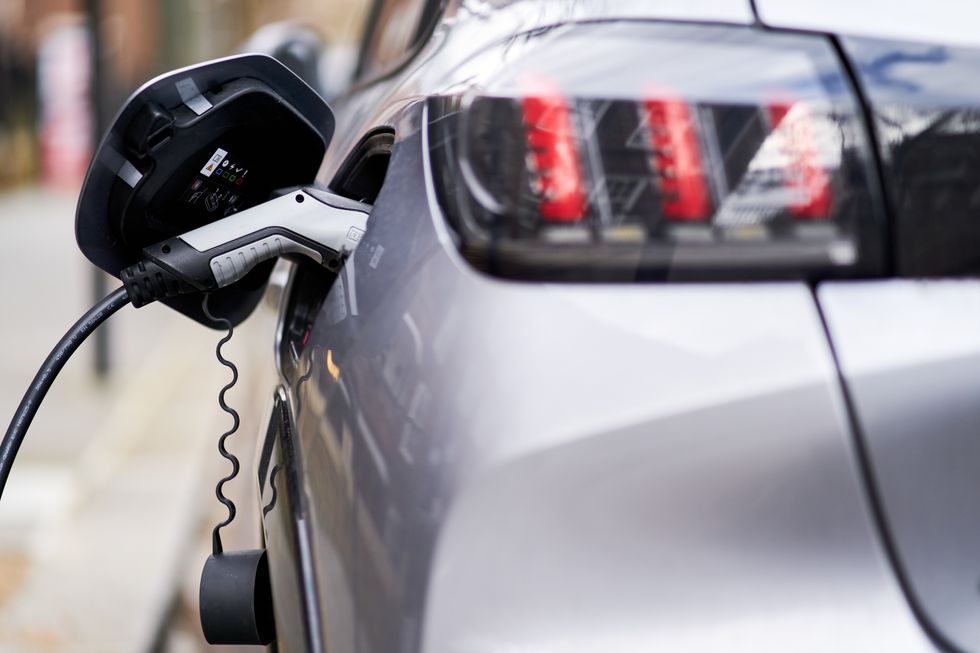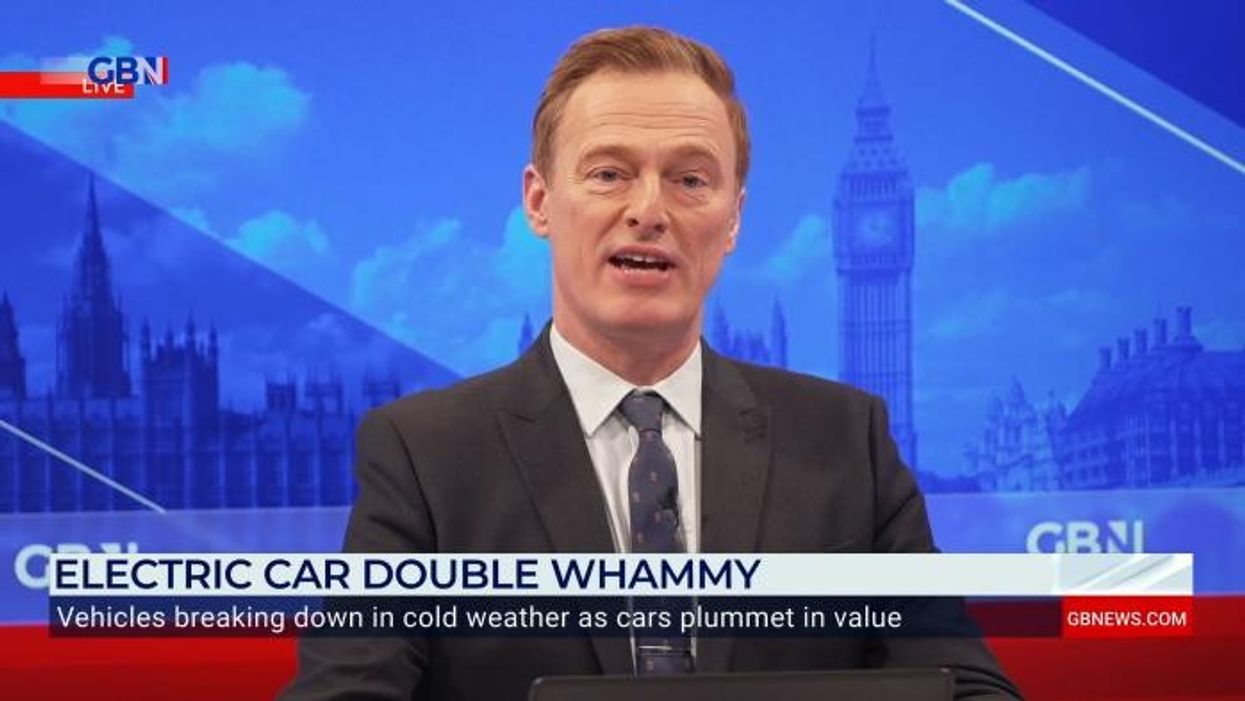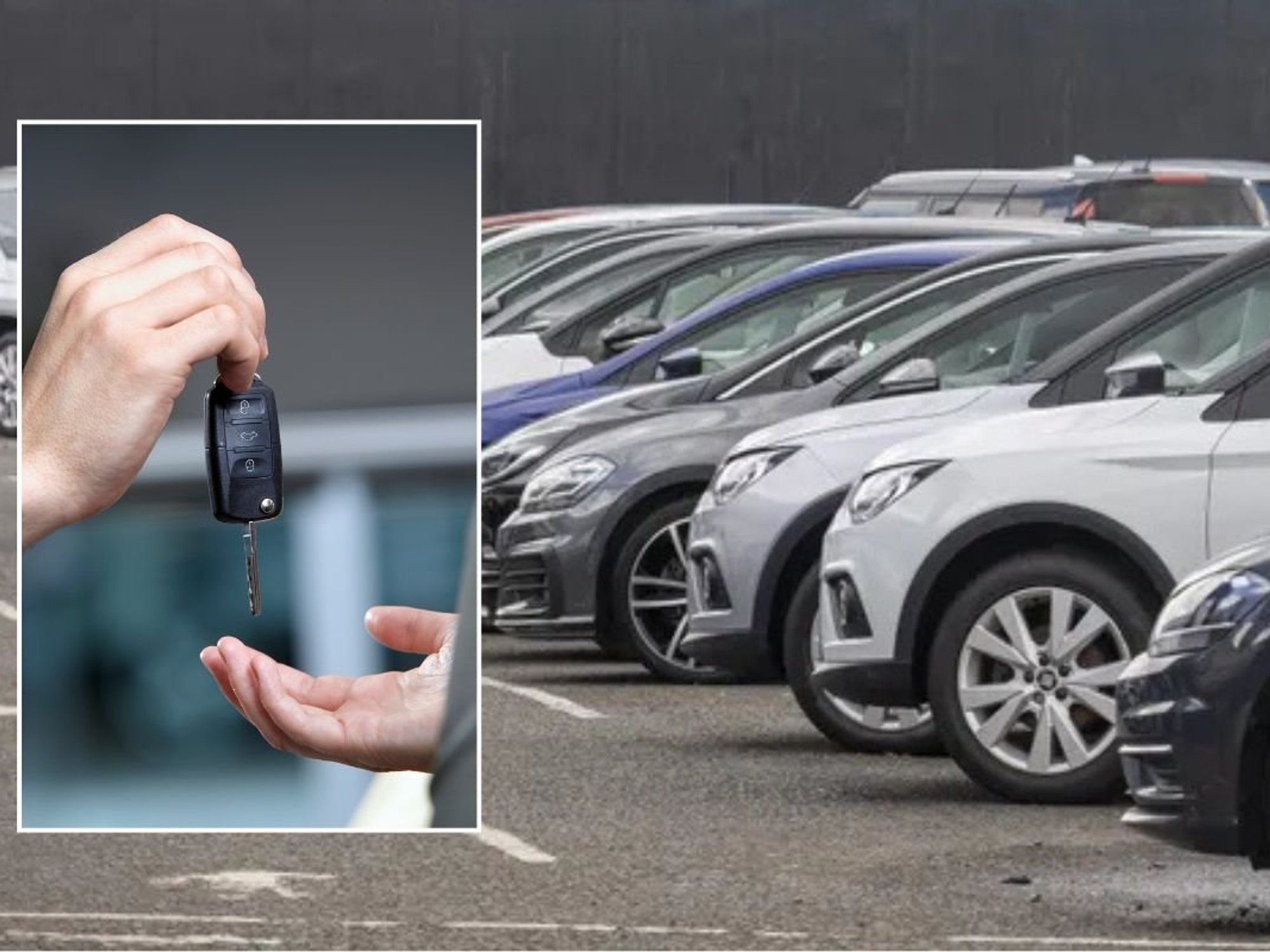China planning to 'invade' Europe with electric vehicles as US slaps 27.5 per cent tariffs on Chinese imports

The 7,000 vehicles are being transported on Chinese cargo ship the BYD Explorer
Don't Miss
Most Read
An incoming shipment of electric vehicles from China is heading towards the West, aimed at cracking the European and British markets.
Transported on gigantic cargo ship the BYD Explorer, the 7,000 electric vehicles could trigger a wave of Chinese worldwide manufacturing dominance, as well as cause trade wars.
The US has already slapped a 27.5 per cent tariff on Chinese electric car imports and the EU are considering following suit.
“Global markets are now flooded with cheaper Chinese electric cars,” Ursula Von der Leyen told the European parliament.

The BYD Explorer is carrying 7,000 electric vehicles over to the West
|Getty
The ship is owned by BYD, a Chinese company and the world’s largest manufacturer of electric vehicles.
The company sells its basic model of car for just over £8,000. In comparison, its Western rival Tesla, which previously held the title of the largest global manufacturer, sells its cheapest model for just under £40,000.
BYD has also trumped the West in its decision to commission its own “roll-on-roll-off” (RoRo) car transporters, the first of its kind.
Typically, car manufacturers use big international shipping companies to move their goods but BYD were concerned that there was too much demand in comparison to shared transport options, so decided to create their own.
LATEST DEVELOPMENTS:

The ship is owned by BYD, a Chinese company and the world’s largest manufacturer of electric vehicles
|Getty
However, stopping the company short of worldwide dominance is overcoming the internal politics of the EU.
Governments have become worried that their own car industries will be overshadowed by the influx of Chinese companies, which are beating them on price and production speed.
Last year, Von der Leyen announced a formal inquiry into whether to enforce taxes on imports.
The inquiry will examine whether BYD and two other large Chinese big Chinese manufacturers, Geely and SAIC, are aided by “hidden” government subsidies — specifically inexpensive loans and supplies of steel and electricity.
“Their price is kept artificially low by huge state subsidies,” Von der Leyen added. “This is distorting our market.”
Electric vehicles have come to represent the world’s determination to act more eco-consciously and cut the use of fossil fuels.
The UK and EU have set huge green targets and aim to eventually transition towards electric cars only.

Last year, Von der Leyen announced a formal inquiry into whether to enforce taxes on imports
| PAPrime Minister Rishi Sunak rolled back a number of net zero measures last year, including delaying the deadline to ban the sale of new petrol and diesel cars and vans from 2030 to 2035.
This was met with mixed reactions from across the sector. A number of manufacturers were dismayed by the announcement and the impact it would have on the uptake of EVs while drivers were pleased that prices of new vehicles would likely fall.
Despite Sunak’s push for “going green”, sales are not taking off, with only 16 per cent of cars sold last year in Britain being fully electric.
Last month, the chairman of Toyota said electric vehicles will only make up 30 per cent of the global market share despite massive investments into EVs.
He suggested that petrol and diesel internal combustion engine vehicles, hybrids and hydrogen fuel cell vehicles would make up the rest of the market.

Only 16 per cent of cars sold last year in Britain were fully electric
| PATo compensate for the poor sales, many European countries have given subsidies for the sales of electric vehicles – a move which can benefit both imported and exported cars equally.
Bejing has dismissed the threat of tariffs as being an overaction from the EU, stating that their own market share is still low.
China also holds power in its dominance over the production of materials needed to build the vehicle. Europe could limit the sale of Eastern electric cars, but it would still need to pay China to obtain the resources needed to make the vehicles in the first place.
“That’s where the Chinese can hurt Europe, which is dependent on these imports,” Noah Barkin, an expert on trade policy at the German Marshall Foundation, said.
The main problem China faces is the customer’s likely reluctance to purchase a car from a brand they are not familiar with, such as BYD.











